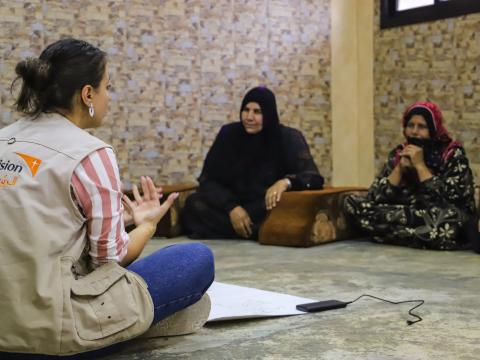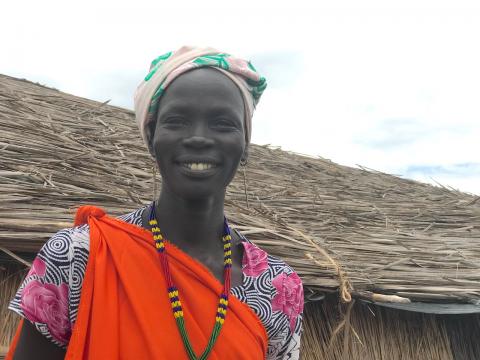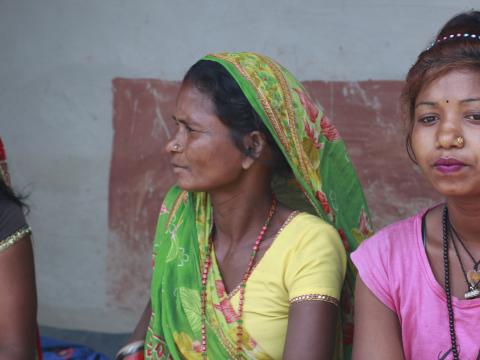
Listen and believe: Women are key to ensuring aid delivered to most vulnerable
Kate Kobaidze reflects on the importance of active listening to women in order to provide effective humanitarian assistance as she prepares for the Women Deliver 2023 conference in Kigali, Rwanda. At the triennial event, World Vision and the Global Women’s Institute will present critical learnings from an Empowered Aid project in Lebanon.
Seeking safety is a human right, and yet, data shows that women around the globe feel unsafe, inside or outside their homes. A 2021 study, conducted by World Vision found that around 50 percent of surveyed women in Lebanon, Jordan and Türkiye felt they were not able to enjoy safety and freedom of movement outside home, and the same was true for over 70 percent of surveyed women in Iraq, north-west Syria or government of Syria ruled areas. The same study found that the restricted movement later negatively affected their children’s well-being, specifically their dietary/nutritional choices, exposure to violence and overall mental well-being.
As an international non-governmental child-focused organisation, it is World Vision’s primary mandate to ensure our aid interventions reach those that need it most. Especially considering that lack of safety and feeling of being fearful was reported by 73 percent of women during food distribution process, recognizing and addressing barriers towards safety in reaching the most vulnerable deserves to be a leading concern. It is not only a matter of adherence to a fundamental human right to feel safe, but also a matter of effectiveness and quality of humanitarian assistance interventions. Otherwise, it’s all in vain.
“Men are afraid that women will laugh at them. Women are afraid
that men will kill them.” Margaret Atwood
One would think the above reasoning is convincing, and yet, safe and dignified access to humanitarian aid is still a luxury for many. Perhaps one of the reasons behind this is not knowing how to ensure it? The good news is that the answer is simple, all we need to do is to ask aid recipients – how, where and when they want to receive the assistance and simply follow what they say – active listening has immeasurable value. This is what the Empowered Aid toolkit allows humanitarian agencies to do. It properly explores how sexual exploitation and abuse risks should be prevented, by asking the right questions to affected population, primarily women.
World Vision Lebanon implemented the Empowered Aid toolkit for a water, sanitation and hygiene project in 2022, while distributing disinfection kits to Syrian refugees in Bekaa governorate. Thanks to its simple methodology and easy to apply tools, the results of Empowered Aid implementation provided solid recommendations for scaling up safe and dignified aid interventions.
An important learning is the realisation that safe and dignified access to aid requires investment and now it is up to humanitarian agencies and donors to honour this commitment.
At the end of a day, all it takes is to listen and to believe women, as their concerns are real. By creating a secure and nurturing environment for them, as they go through some of the hardest days in their lives, we are doing the most basic – making them feel human, with equal worth and dignity as everyone else.
Kate Kobaidze is Strategy and Ministry Quality Director at World Vision's Middle East and Eastern Europe regional office. She can be reached at kate_kobaidze@wvi.org to attend the event or to arrange a meeting.

